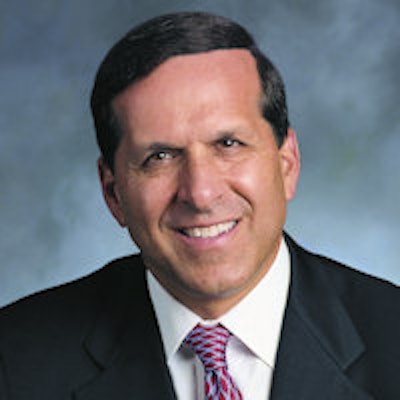
In the latest edition of his Questions and Answers series on DrBicuspid.com, Roger P. Levin, DDS, addresses a topic of interest within the practice and management of dentistry. In this month's column, he discusses the integration of social media and offers some practical ideas as to how to start, or improve, your use of this increasingly important medium.
DrBicuspid.com: Should practitioners become involved in social media?
 Roger P. Levin, DDS, chairman and CEO of practice management consulting firm Levin Group.
Roger P. Levin, DDS, chairman and CEO of practice management consulting firm Levin Group.Dr. Levin: In the postrecession dental economy, patients act more and more like retail consumers: They comparison shop to find the best deals, and they expect more value for their money. One tool dentists can use to build value is social media. Studies have shown that three-quarters of consumers rely on social media to influence their purchasing decisions.
Whether or not a dentist participates in social media, patients are communicating online with their friends and family. If your practice is not part of the conversation, then you are missing an opportunity to encourage potential patients to give your practice a closer look. You may also be missing the chance to share existing patient feedback that will help build your reputation and encourage referrals.
How should dentists present themselves on social media?
If you already have a marketing program in place, then you're ready to integrate social media into the mix. Take a look at the messages you're promoting -- you don't need to create new campaigns for social media sites. You simply need to adapt the messages to the media. For example, if you're the only dentist in town who offers a particular service, you'll want to announce and promote that service on your social media sites.
News items about your practice should also be part of your content. If the dentist has received an award or new certification, announce it online. When you receive positive feedback from a patient, you'll want to let your patient base know (make sure to obtain permission first). Post friendly reminders about how patients can protect their oral health, and share articles about subjects that they may find interesting.
Which social media sites get the most usage?
Facebook remains the dominant social media site today. According to the Pew Research Center, 57% of all U.S. adults and 73% of all those ages 12 to 17 use Facebook. And, adult Facebook use is intensifying: 64% of Facebook users visit the site on a daily basis, and 45% of Internet users age 65 and older use the site.
Getting started on Facebook is fairly simple:
- Create a page for your practice. Facebook provides easy, step-by-step instructions.
- Use photos to provide visual interest. In particular, you'll need a profile picture -- which can be the dentist's portrait or the practice logo -- and a "cover" photo to showcase your entire team or office.
- Let your patients know you're on Facebook. Ask them to "like" your practice page, and link to it from all emails that go out to patients.
While Facebook is popular across a diverse mix of users, other sites have developed their own unique demographic profiles. Depending on your patient base, you may want to consider other social media sites as well. For example, Twitter and Instagram appeal to younger adults, urban dwellers, and nonwhites. LinkedIn Company Pages attract college graduates and Internet users in higher income households.
When should a practitioner post?
Avoid the pitfall of thinking "if you build it, they will come." Social media users expect new content on a regular basis, but there's no hard-and-fast rule about how often your practice should post an update. Once a month is not often enough, while every day may be overkill. You'll also want to monitor your social media pages for negative feedback. Although disgruntled patients can often be the most vocal, social media gives you an opportunity to address their concerns directly. And, if you're posting a steady stream of positive messages and announcements about your practice and what you offer, you'll overpower any negativity.
The final word
If used wisely, Facebook and other social media can serve as helpful and inexpensive marketing and communication tools for practices. The more you contribute to the online conversation, the more comfortable it will become and the more you can promote your practice in a powerful way.
For more information, you can visit the Levin Group Resource Center at www.levingroup.com, a free online resource, for tips, videos, and other valuable information.
Roger P. Levin, DDS, is the chairman and CEO of practice management consulting firm Levin Group. You can register for one of Dr. Levin's one- or two-day seminars at www.levingroup.com/gpseminars.
The comments and observations expressed herein do not necessarily reflect the opinions of DrBicuspid.com, nor should they be construed as an endorsement or admonishment of any particular idea, vendor, or organization.



















